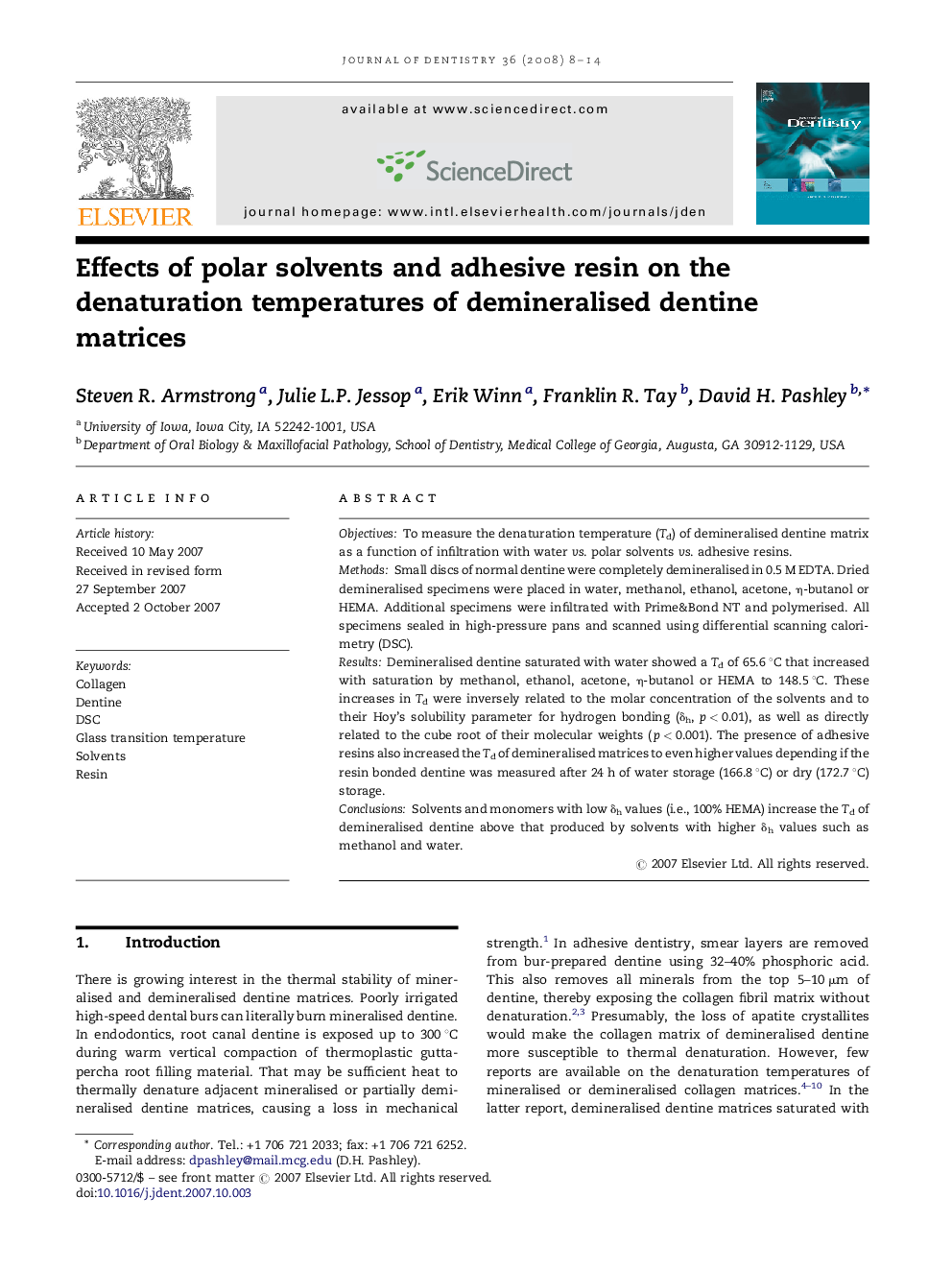| Article ID | Journal | Published Year | Pages | File Type |
|---|---|---|---|---|
| 3145971 | Journal of Dentistry | 2008 | 7 Pages |
ObjectivesTo measure the denaturation temperature (Td) of demineralised dentine matrix as a function of infiltration with water vs. polar solvents vs. adhesive resins.MethodsSmall discs of normal dentine were completely demineralised in 0.5 M EDTA. Dried demineralised specimens were placed in water, methanol, ethanol, acetone, η-butanol or HEMA. Additional specimens were infiltrated with Prime&Bond NT and polymerised. All specimens sealed in high-pressure pans and scanned using differential scanning calorimetry (DSC).ResultsDemineralised dentine saturated with water showed a Td of 65.6 °C that increased with saturation by methanol, ethanol, acetone, η-butanol or HEMA to 148.5 °C. These increases in Td were inversely related to the molar concentration of the solvents and to their Hoy's solubility parameter for hydrogen bonding (δh, p < 0.01), as well as directly related to the cube root of their molecular weights (p < 0.001). The presence of adhesive resins also increased the Td of demineralised matrices to even higher values depending if the resin bonded dentine was measured after 24 h of water storage (166.8 °C) or dry (172.7 °C) storage.ConclusionsSolvents and monomers with low δh values (i.e., 100% HEMA) increase the Td of demineralised dentine above that produced by solvents with higher δh values such as methanol and water.
